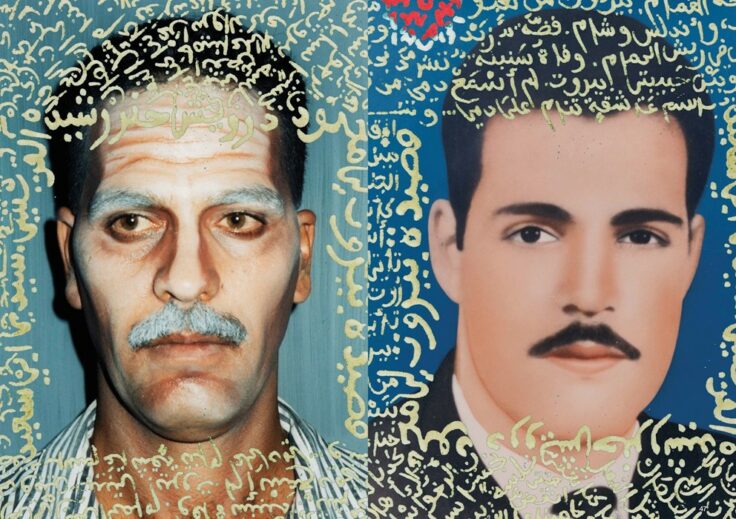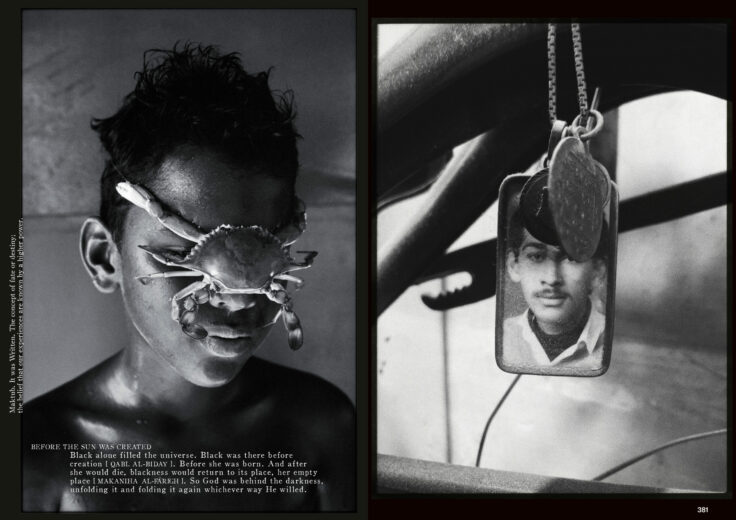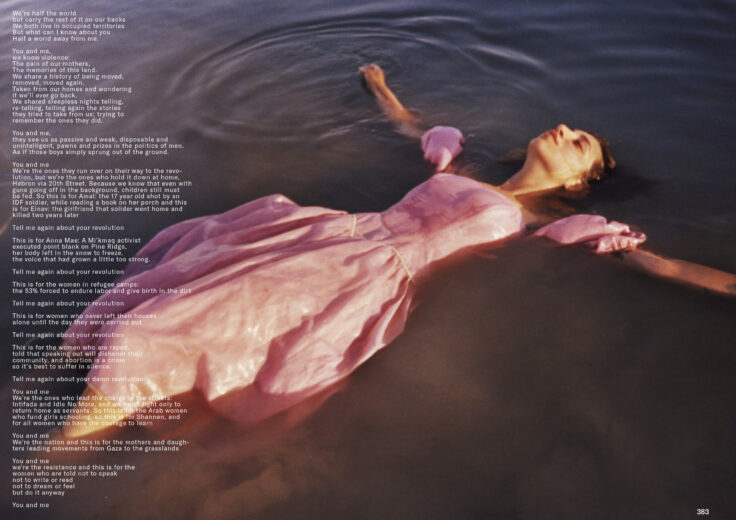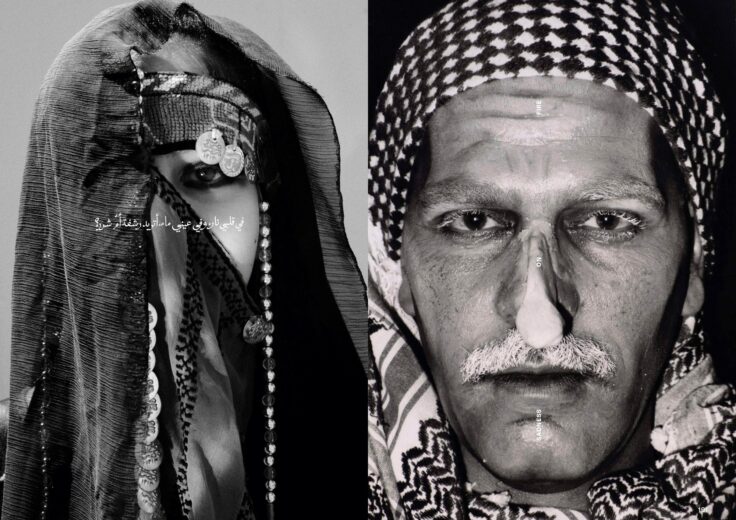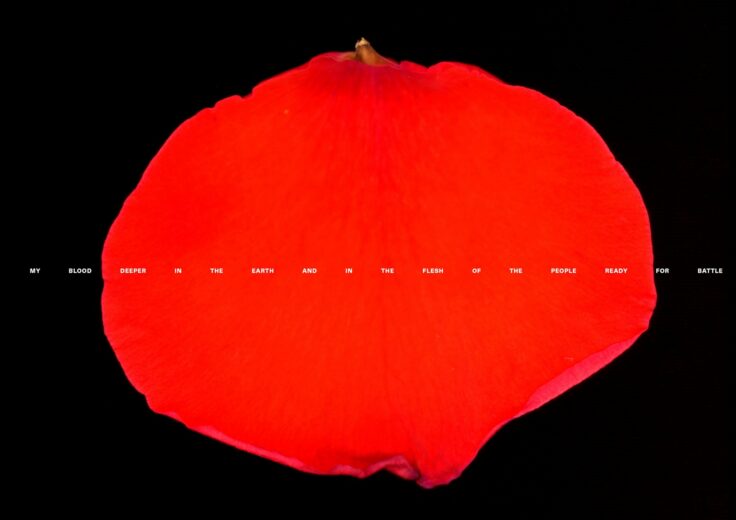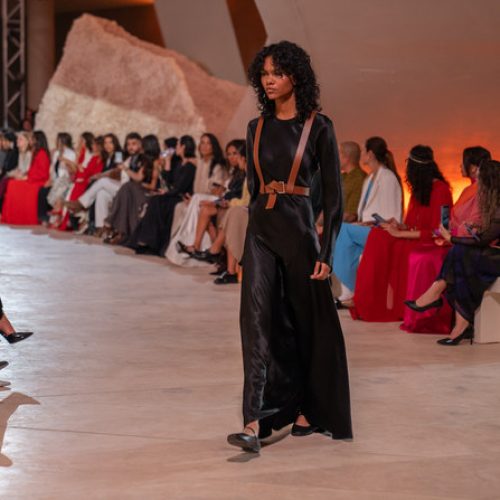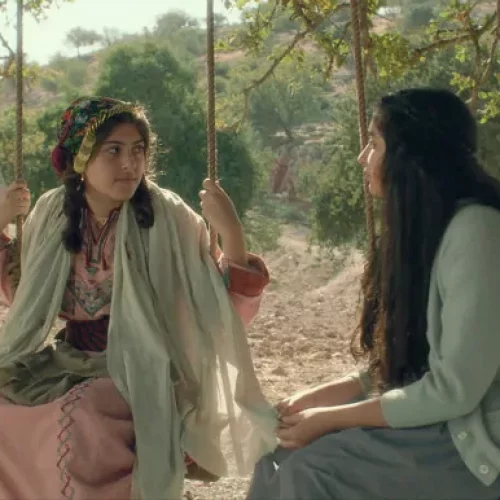“This piece stands as an expression of solidarity with all those who have suffered at the hands of oppressive regimes and systems of power around the world. From the abuses of military and police forces to the insidious manipulations of those in positions of authority, it is a testament to the resilience and courage of those who have fought against such systems, as well as a call to action for those who still endure their injustices. It serves as a reminder that we must stand together in solidarity with all those who seek freedom and dignity.” These powerful words are the opening statement of Yesterday, Come Closer, a powerful opus that emerges in a time where injustices prevail in a world riddled with various forms of oppression.
Yesterday, Come Closer—a 728-page compilation of visual art, photography, poems, essays, speeches, and archival material— is a vivid visualization of Palestine through the memories of Ibrahem Hasan, who grew up as a Palestinian in the Southside of Chicago and in the Occupied Territories.
Crafted by Hasan, the former creative director of Nike, Yesterday, Come Closer initially began as a 600-page collage serving as a form of creative purging under his memories of Palestine, resulting in a poignant reflection of Palestinian collective memory amidst relentless violence and dispossession in Gaza and the West Bank. An urgent exploration of Palestinian liberation, the book delves into sentiments surrounding memory, loss, and, above all else, resistance.
Yesterday, Come Closer is a library of sorts, with a plethora of film, sounds, books, and archival material sourced with the help of the Palestinian Digital Archive based in Jerusalem. Contributor Ahmed Zaghmouri ( also known as Shabmouri) describes it as more than just an archival book but a catalyst—an enzyme that lives on the internet, inspiring artists and creatives to create more and fostering an open-source library despite the age of censorship and oppression.
Initially a solo project that was spearheaded in 2023 by Hasan, Yesterday ,Come Closer swiftly evolved into an expansive cultural landmark, as Zaghmouri, co-founder of Palestinian rap collective BLTNM, joined forces with Hasan. As the project grew, so did the team, bringing on London-based writer Sarra Alayyan who took the role of narrative editor and researcher alongside assistant narrative editor Hussein Amri, calligrapher Tarin Karimbux, researcher Moun Aicha Soussan, and film researcher Jude Khalili.
Transcending the confines of print, Yesterday, Come Closer was published alongside a Sound System created in collaboration with Zaghmouri and Palestinian music platform Radio Al-Hara, which lives on both the website and independently. Zaghmouri explains, “Every Saturday, there was a 24-hour takeover, where I had an open source submission from artists that I love from all over the world to submit whatever they feel about Palestine right now. So it could be a dance-y mix because they want to celebrate a future free Palestine. Or it could be a sad mix, because they’re grieving. It could also be a hard techno mix because they’re angry. It could be a Quran recitation, because they’re praying, or an essay, because they feel like they have a lot to express and a lot to release. So there was a very wide range of submissions, and I promised everyone that everything will be published as is without any tampering, editing, or manipulation.”
Additionally, the medium-bending extension was paralleled by a meticulously crafted website boasting a “Research in Progress” section—a veritable treasure trove granting public access to a vast array of digital artifacts encompassing Palestinian social justice movements, scholarly discourse, interviews, literature, visual media, and beyond.
Every facet of this endeavor, from the stirring chapters within the book to the intricately designed website by Adam Gee, highlights how intentional design strengthens the cause of social justice. Notably, the website features immersive, interactive depictions of Palestinian familial legacies across generations, underscoring the enduring resilience of a people anchored in their heritage.
The project also features a journal which in the book will be spread across multiple pages with a QR code. When you scan the QR code, readers are directed to a section in the website that’s called a journal, which is essentially an archive of film, video work, and visual art.
The book serves as a space where conversations surrounding the harrowing and humiliating realities of navigating checkpoints and enduring life as a Palestinian, whether within Palestine or in the diaspora, are fostered. It stands as a poignant reflection of both the pain and suffering endured, and the enduring beauty and heritage of Palestine. Through its non-linear narrative, the book delves into notions of home and belonging in the face of settler colonialism, marginalization, and oppression. It communicates the essence of Palestinian identity free from Western perspectives, debunking stereotypes and reclaiming the narrative through deeply shared experiences. In the midst of the ongoing genocide in Gaza, this book serves as a tribute to Palestinian ancestral voices, speaking not only for Palestinians but for all indigenous peoples forcibly displaced from their lands.
When asked about what he hopes readers take away from the book, Zaghmouri shares, “What we want the audience to receive is a feeling. It’s our purge of emotions into this project. It’s the overwhelming sadness of Palestinianess and of an oppressed nation.”
He emphasizes the project’s scope, explaining that it couldn’t be limited to a mere visual photography book or a textbook. Palestine, he asserts, is a global cause, a geopolitical issue at the forefront of world politics and culture. He sees Yesterday, Come Closer as a conduit for sharing emotions with like-minded individuals who seek deeper understanding and connection with Palestine.”
“Yesterday, Come Closer is a cultural landmark that foreshadows a free and beautiful Palestine,” he explains. “It is the visualization of the beautiful Palestine that many wish could come closer. When Palestinians talk of an ideal Palestine, in their memory, it’s that one that our ancestors keep describing. So our picture of a free and beautiful Palestine, the Palestine that we are nostalgic of, is the Palestine of the past. We’re wishing for the past to come closer to us and become the present.”
In addition to shedding light on the Palestinian cause, the profits of this book will also be equally distributed to efforts and grassroot led missions in Congo, Sudan, Yemen, and of course, Palestine. “At the end of the day, we are all the same, and we are all oppressed people,” notes Zaghmouri.
Yesterday, Come Closer by Ibrahem Hasan is self-published, and is available for order now. Head to the Yesterday, Come Closer website here.





